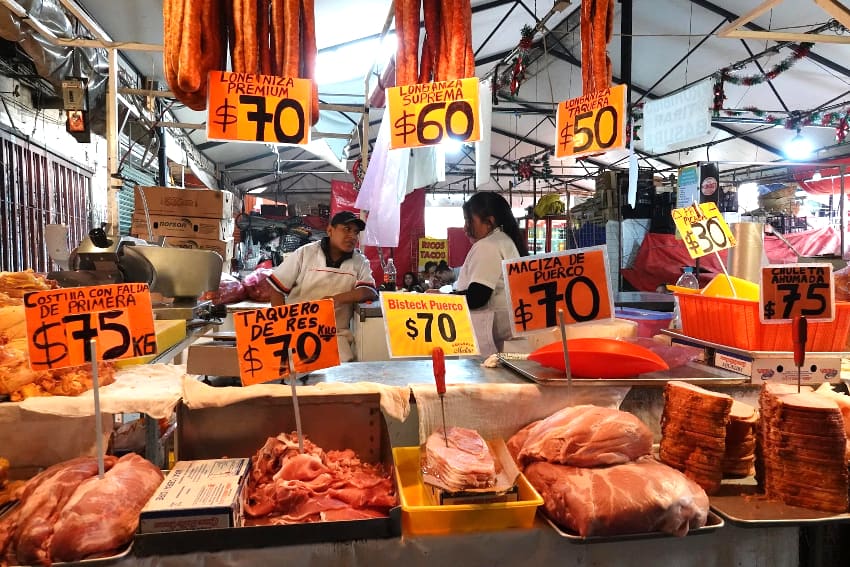Inflation in Mexico resumed downward trend in February

Inflation in Mexico declined in February for the first time in four months, increasing the probability that the Bank of Mexico (Banxico) will make an initial cut to its record high interest rate later in March.
The annual headline rate was 4.40% last month, down from 4.88% in January, according to data from the national statistics agency INEGI. The rate is slightly below the 4.44% consensus forecast of analysts surveyed by Citibanamex. The month-over-month increase in consumer prices was 0.09%, the lowest January-to-February spike since 2019.
Meanwhile, the closely-watched core inflation rate, which excludes volatile food and energy prices, fell for a 13th consecutive month in February to reach 4.64%, down from 4.76% in January.
With the decline in headline inflation last month, the downward trend that lasted for nine months between February and October last year has resumed.
While the headline rate remains well above the central bank’s target, the decline in February increases the probability that Banxico will reduce its record high 11.25% benchmark interest rate by 25 basis points on March 21, said Gabriela Siller, director of economic analysis at Banco Base, a Mexican bank.
The Banxico board will hold its next monetary policy meeting on that date.
Jason Tuvey, deputy chief emerging markets economist at the London-based research company Capital Economics, said that the latest consumer price figures “leave the path open for Banxico to cut interest rates by 25 basis points later this month.”
Siller is not anticipating an aggressive rate-easing cycle this year, predicting that the central bank will cut its key rate by 100 basis points at the most over the course of 2024. That would leave Banxico’s reference rate at a still-high 10.25% at the end of the year.
The latest inflation data and increased likelihood that Banxico will reduce rates by 25 basis points later this month didn’t have a major impact on the Mexican peso, which has been supported for the past 12-18 months by the wide differential between interest rates in Mexico and those in the United States. The currency was trading at 16.88 to the US dollar at 10 a.m. Mexico City time, on par with its closing position on Wednesday.
What caused inflation to fall in February?
A significant decline in the inflation rate for agricultural products (fruit, vegetables and meat) was a major factor in the drop in headline inflation. The annual inflation rate for those products was 4.77% in February, down from 9.75% in January. Meat was in fact 3.23% cheaper last month than a year earlier, while fruit and vegetables inflation was 15%, down from almost 22% in January.
The month-over-month decrease in prices for agricultural products was 4.60%. That decline was fueled by an 8.43% reduction in fruit and vegetable prices.
Andrés Abadia, chief Latin America economist at the U.K.-based firm Pantheon Macroeconomics, noted that the month-over-month decline in agricultural product prices came after sharp increases in previous months due to difficult climate conditions — namely drought — in “key states” around Mexico.

Supply of such products “finally improved” in February, he said.
The price of tomatoes, for example, declined almost 42% compared to January, while green tomatoes, nopales, poblano chilis and squash were also significantly cheaper in February.
The annual inflation rate for processed food, beverages and tobacco moderated to 5.25% from 5.54% in January, while prices for goods in general were up 4.11% in annual terms, down slightly from a 4.37% reading in January.
Meanwhile, the annual inflation rate for services rose slightly to reach 5.30%, while energy prices, including those for gasoline and electricity, were 2.75% higher than a year earlier, well above the 1.41% rate in January.
Tuvey, the Capital Economics economist, said that “the continued strength of services inflation” means that Banxico’s easing-cycle “will be more gradual than most currently anticipate.”
With reports from El Financiero, El Economista and Reuters
Source: Mexico News Daily

